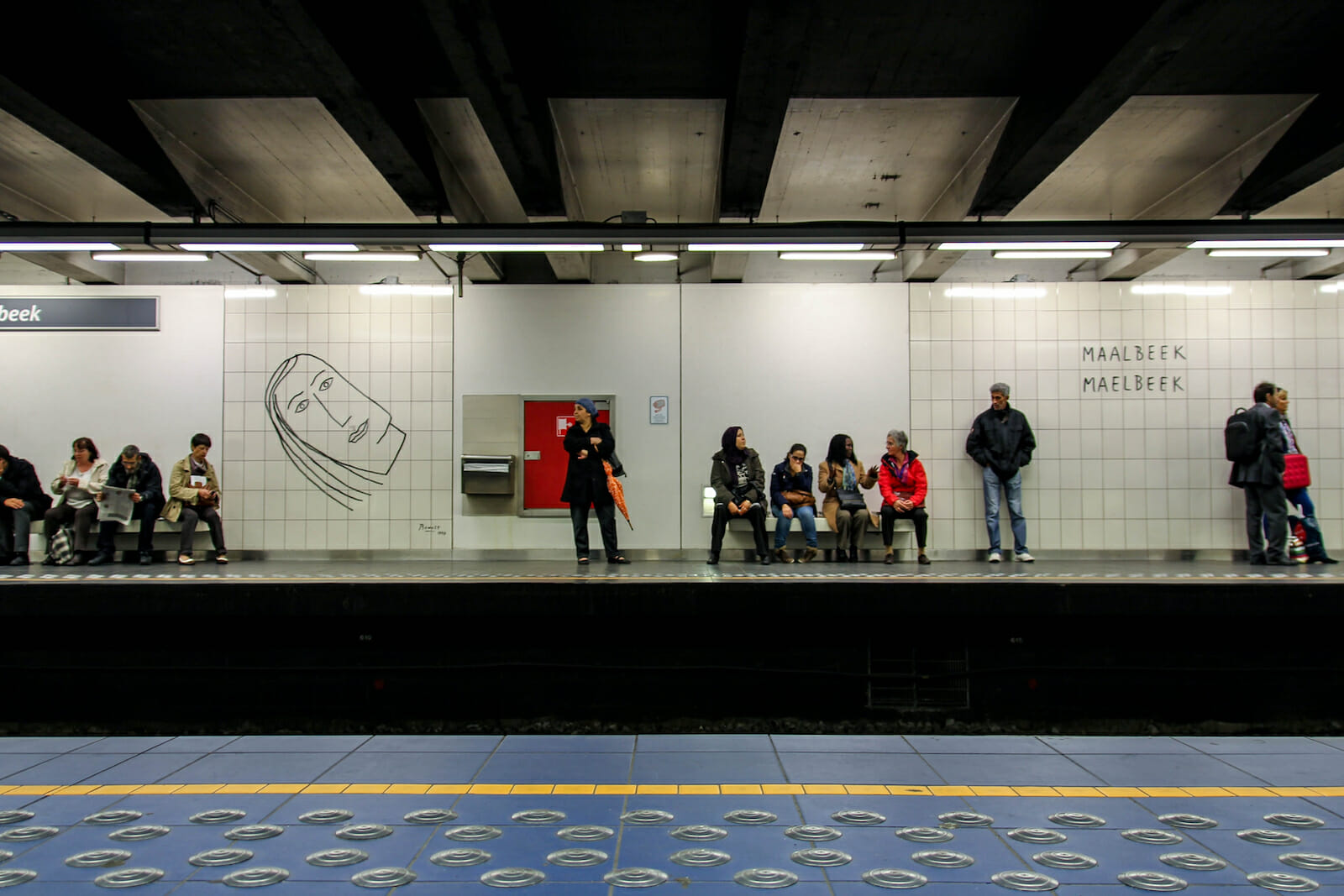
Culture
Garcia Lorca: Beyond Poetic Justice
The poem “Landscape without song” (“Paisaje sin canción”) by Spanish poet and playwright Federico García Lorca is included in a mural created by Belgium artist Benoît van Innis which was inaugurated in the Metro station of Maelbeek as a memorial to the victims of the terrorist attack perpetrated last March in Brussels.
The mural reproduces an olive tree in an area of 2.75 meters high and 6.5 meters wide, with the poem “Landscape without song” written in eight languages (Arabic, Chinese, Dutch, English, French, German, Russian and Spanish) below the olive tree and over the walls besides the mural.
Last week, Argentine Federal Judge María Servini de Cubría opened an investigation into the death of Federico García Lorca, who is believed to have been executed in 1936 by forces loyal to General Francisco Franco.
The investigation was accepted by Judge Servini de Cubría after being filed by Spanish human rights group called the Association for the Recuperation of Historical Memory (Asociación para la Recuperación de la Memoria Histórica) as part of the collective legal action known as Argentine Complaint (“Querella Argentina”).
The Argentine Complaint
In 2010, the relatives of three Spaniards and an Argentine killed during the 1936-39 war by forces loyal to Franco filed a complaint before the Argentine Federal Justice.
The complaint was accepted and it is being instructed in the Federal Criminal and Correctional Court No.1 in Buenos Aires, by Judge M. Servini de Cubría as case 4591/10 on charges of genocide and/or crimes against humanity committed in Spain by the Franco dictatorship between July 17, 1936 and June 15, 1977 (“N.N. por genocidio y/o crímenes de lesa humanidad cometidos en España por la dictadura franquista entre el 17 de julio de 1936, comienzo del golpe cívico militar, y el 15 de junio de 1977, fecha de celebración de las primeras elecciones democráticas”).
The case is commonly referred to as the Argentine Complaint (“Querella Argentina”) and it is the only case open in the world to prosecute the crimes committed by the Franco regime.
Under the principle of Universal Jurisdiction for human rights issues, and due to the denial of legal recourse to plaintiffs in Spain following the so-called Amnesty Law dictated in Spain in 1977, Spanish and Argentine human rights organizations, Spanish City Halls and relatives of the victims have been filing new claims which have been aggregated to the “Querella Argentina” before Judge M. Servini de Cubría, which now could be considered a mega probe as it involves thousands of cases.
Such cross-border human rights probes have been the area of expertise of Spain’s Judge Baltasar Garzon, whose case against Chilean Gen. Augusto Pinochet in 1998 helped to prosecute Latin America’s dictators and their forces, also in Argentina. But Judge Garzon dropped his investigations concerning the Franco dictatorship crimes as he was being questioned by state prosecutors of reviewing crimes that were covered by the Amnesty passed in 1977.
Among recent claims, in May 2016, Women’s Link Worldwide filed a complaint to be aggregated in the “Querella Argentina” calling for the investigation of systematic gender violence against women as part of human rights abuses committed by forces loyal to Franco during the country’s 1936-39 Civil War and afterwards during Spain’s Franco dictatorship.
The claim names six Spanish women as examples of what Women’s Link Worldwide said was a double-punishment inflicted against numerous women in Franco’s Spain, who were systematically shamed, tortured, raped, deprived of their children and murdered for being “liberated women” and for having male family members who served on the Republican side in the Civil War.
“We presented a historical context to the judge, in which we show how during Francisco Franco’ dictatorship women’s rights have been crushed,” Women’s Link Worldwide Legal Counsel Ms. Teresa Fernández told to Telam News Agency in Argentina.
With Franco, “women were forced to return to the private environment, they were not allowed to get involved in public activities and they could only work until they contracted marriage.” “They were raped in jails and on the streets. They even encouraged ‘raping the reds’ (adjective used to refer to women supporters of the republic) as a disciplinary method,” stated Teresa Fernández.
It is expected that the “Querella Argentina” will continue facing hurdles to complete judicial procedures and to impose charges to the perpetrators of crimes; but putting together the stories of the victims and their circumstances in search of judicial justice is an undisputed step forward towards sustaining the moral values of people across borders.

